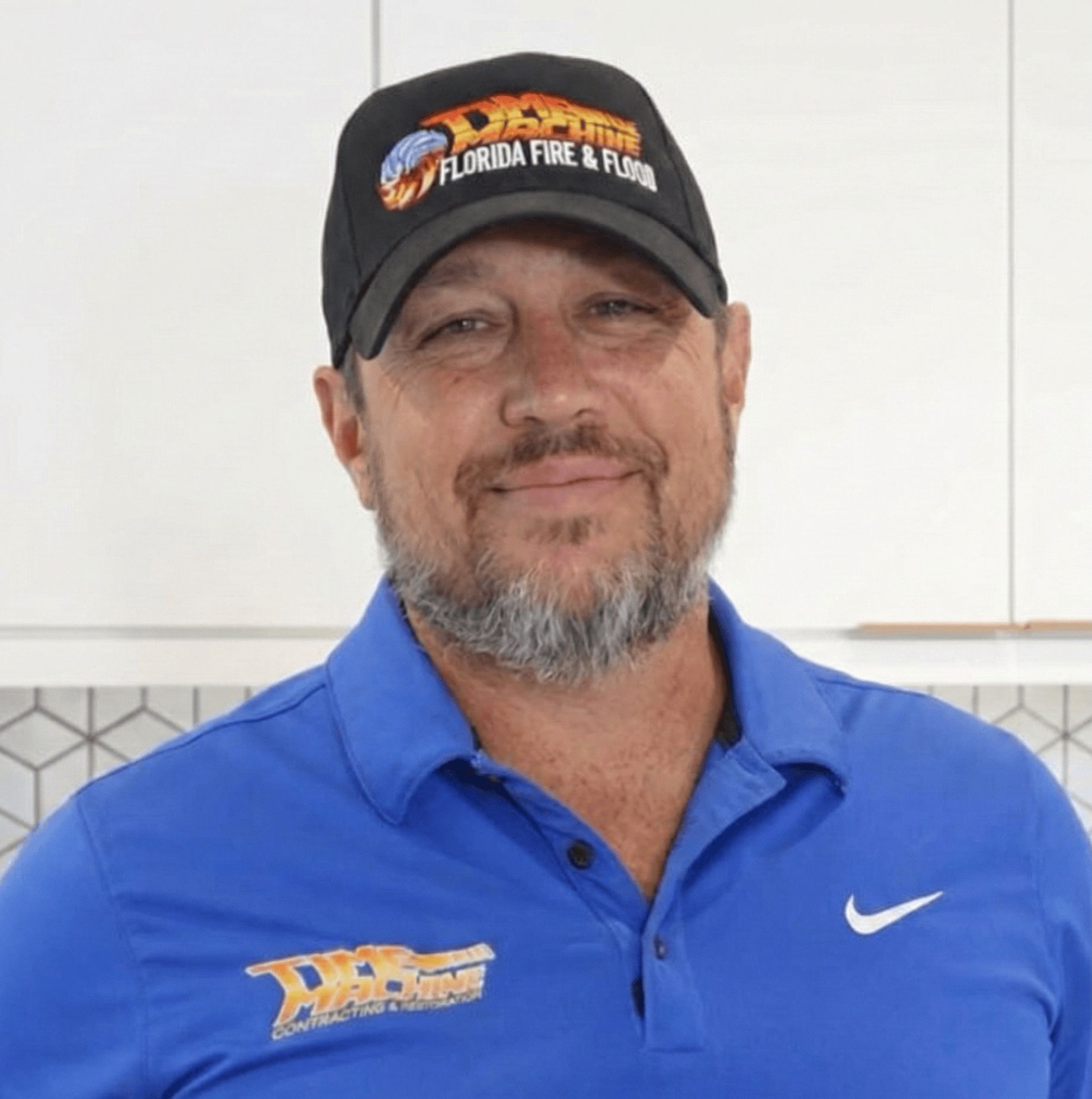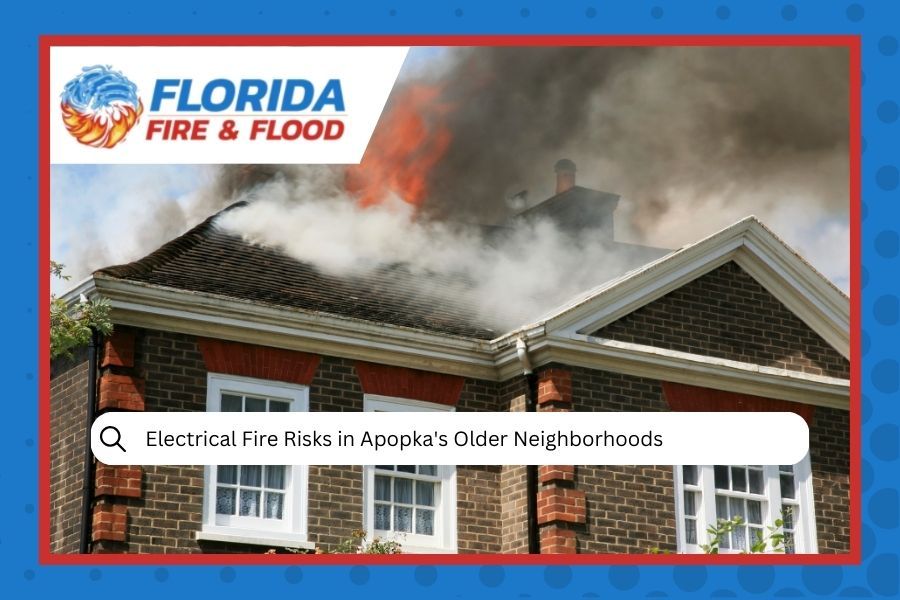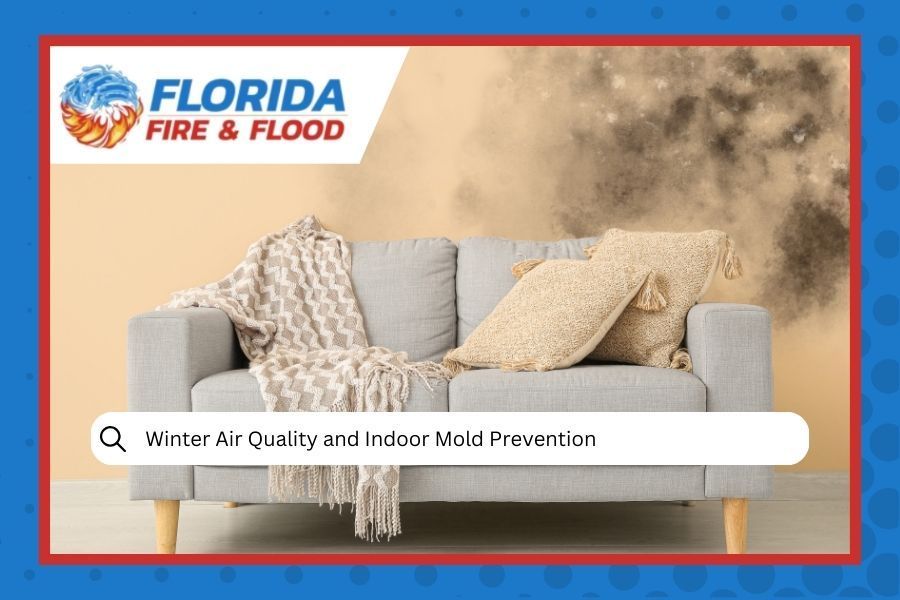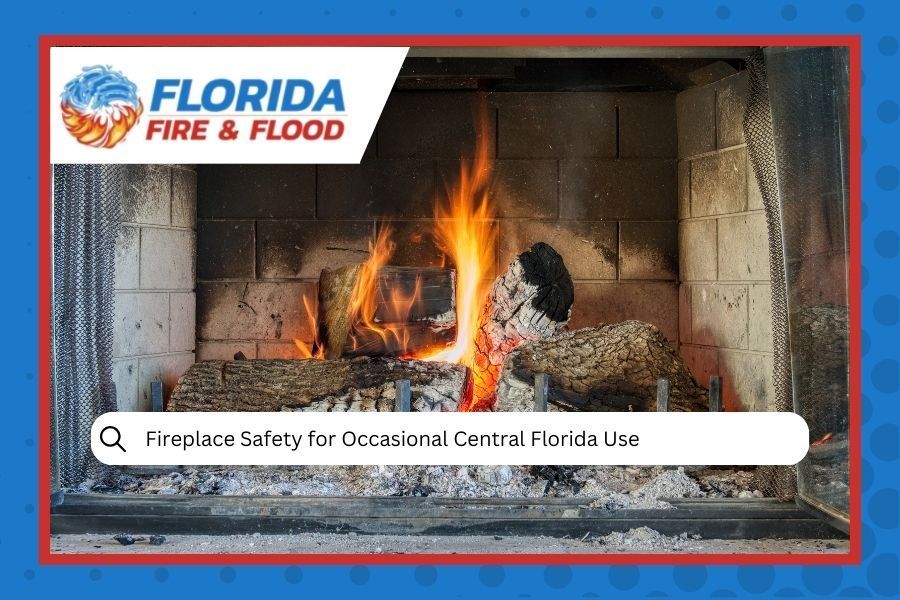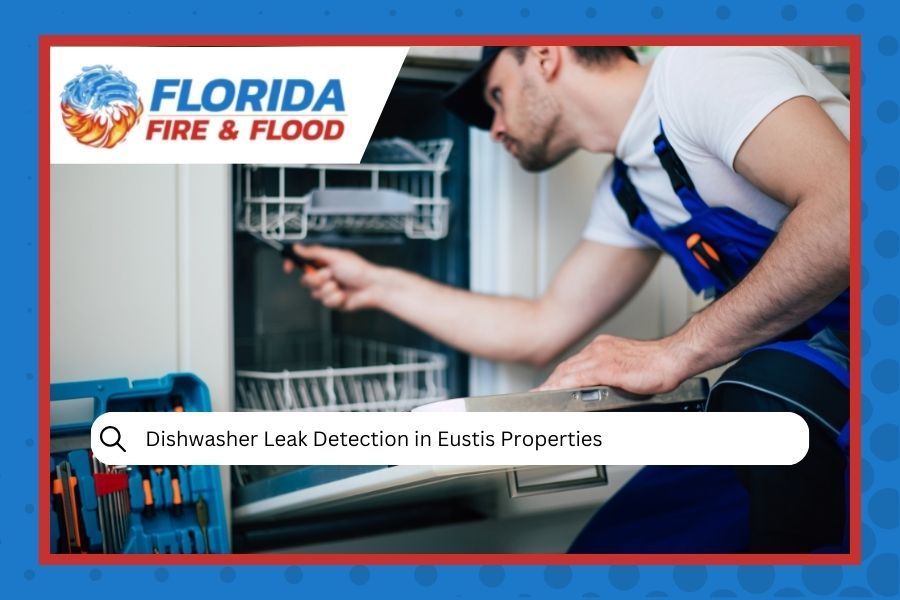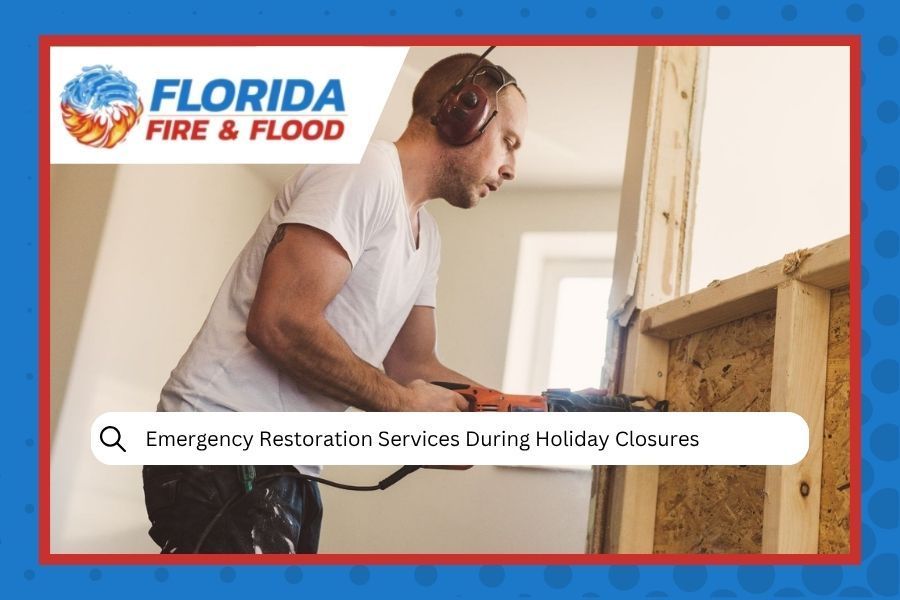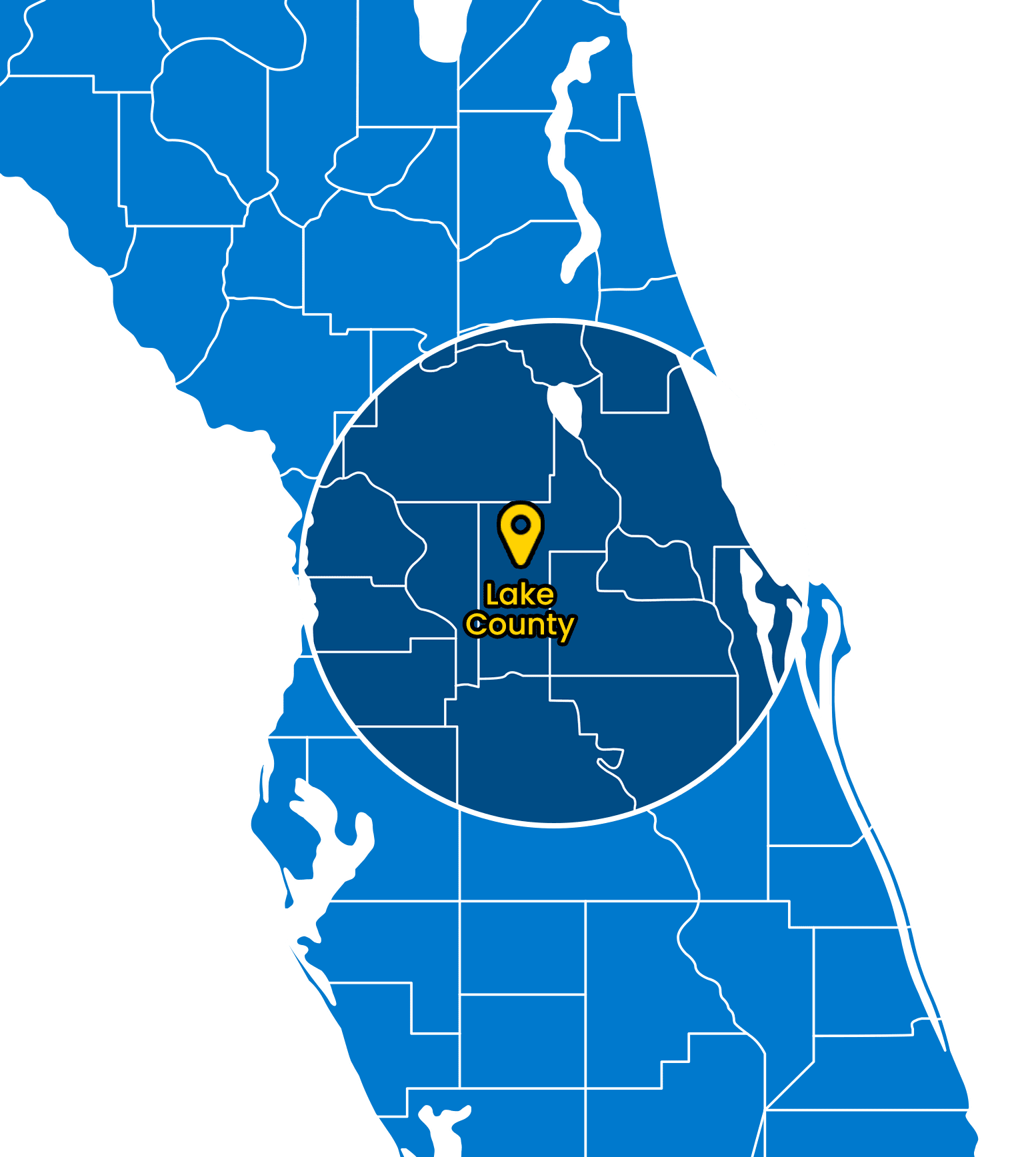AMRT - Applied Microbial Technician I, (Mold Remediation)
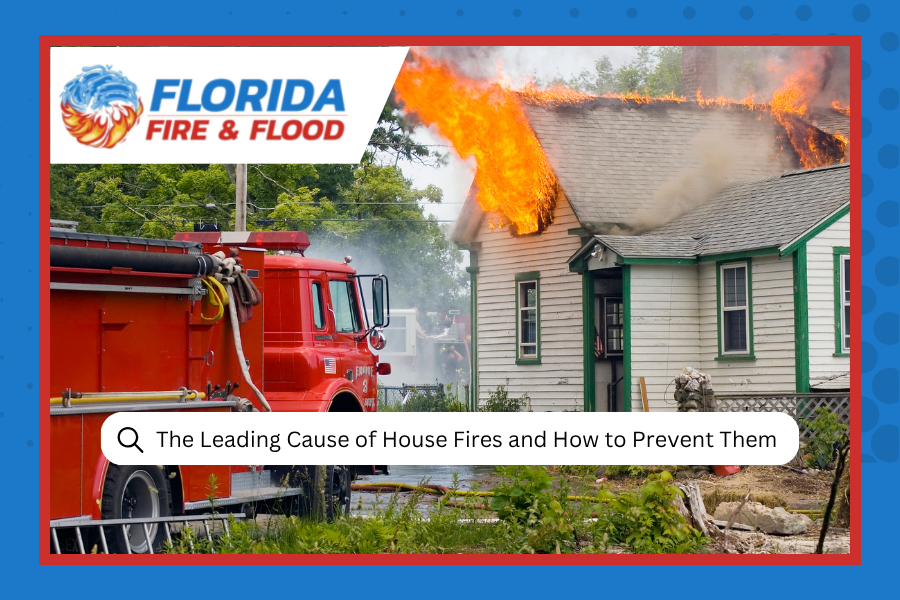
Nobody wants to think about their home going up in flames, but here's the thing: a little knowledge and preparation can save you from a world of heartache (and a hefty insurance claim). As a team that's seen our fair share of fire damage across Central Florida, we at Florida Fire & Flood want to share what we've learned about keeping your home safe. Trust us, fire damage restoration is something you definitely want to avoid needing.
So what's the number one culprit behind house fires? You might be surprised to learn it's not faulty wiring or space heaters, though those certainly make the list. The leading cause of residential fires is actually cooking accidents. Yep, that innocent dinner prep can turn dangerous faster than you can say "burnt toast."
According to the National Fire Protection Association, cooking equipment is involved in almost half of all home structure fires.
Why Cooking Fires Are So Common
Think about it: cooking involves heat, grease, electricity, and often a bit of multitasking (we're all guilty of starting dinner and then wandering off to help with homework). It's like a perfect storm for potential disaster. According to the National Fire Protection Association, cooking fires account for nearly half of all home fires.
The American Red Cross also emphasizes that most home fire deaths occur in homes without working smoke alarms, making early detection absolutely critical.
Here in Central Florida, we see cooking-related fire damage calls more often than we'd like. Maybe it's that holiday turkey that got a little too crispy, or someone left oil heating on the stove while answering the door. These things happen to the best of us, but the good news is they're mostly preventable.
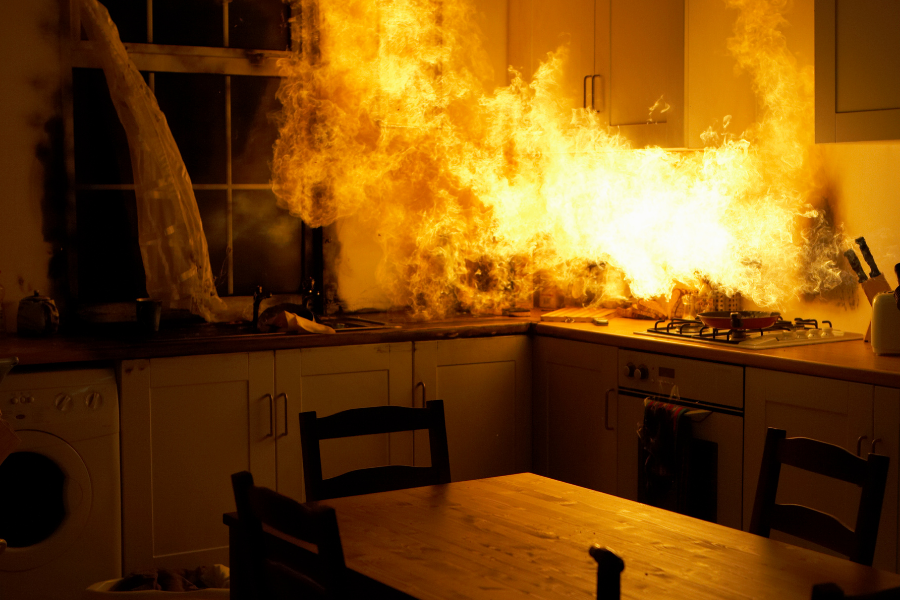
Simple Kitchen Fire Prevention Tips
Stay Put When You're Cooking
This one's huge. We know life gets busy, especially when you're juggling dinner and everything else. But staying in the kitchen while cooking, especially when using the stovetop, can prevent most cooking fires. If you absolutely have to step away, turn off the heat first. Your pasta can wait, your house can't.
Keep Your Cooking Area Clean
Grease buildup is like kindling waiting for a spark. Wipe down your stovetop regularly, clean your oven, and don't let crumbs accumulate. A clean kitchen is a safer kitchen, plus your spouse will be impressed with your newfound tidiness.
Watch Your Temperatures
High heat might seem like a shortcut to faster cooking, but it's also a shortcut to trouble. Keep temperatures moderate, especially when working with oils and fats. If something starts smoking, that's your cue to turn down the heat or remove the pan from the burner entirely.
Beyond the Kitchen: Other Fire Hazards to Watch
While cooking fires top the list, there are other sneaky fire hazards lurking around your home that deserve attention.
Electrical Issues
Faulty wiring, overloaded circuits, and damaged extension cords are serious business. If you notice flickering lights, warm outlets, or that burning smell that definitely isn't your dinner, call an electrician. Don't try to be the hero here; electrical work is best left to the pros.
Heating Equipment
Space heaters, fireplaces, and even your HVAC system can become fire hazards if not properly maintained. Keep flammable items at least three feet away from any heat source, and have your chimney cleaned annually if you use your fireplace regularly.
Smoking Materials
If someone in your household smokes, make sure cigarettes and other smoking materials are completely extinguished before disposal. Use deep, wide ashtrays and never smoke in bed (seriously, just don't).
Fire Safety Equipment Every Home Needs
Smoke Detectors
This should go without saying, but we'll say it anyway: working smoke detectors save lives. Test them monthly and change the batteries at least once a year. Pro tip: do it when daylight saving time changes, so you'll remember.
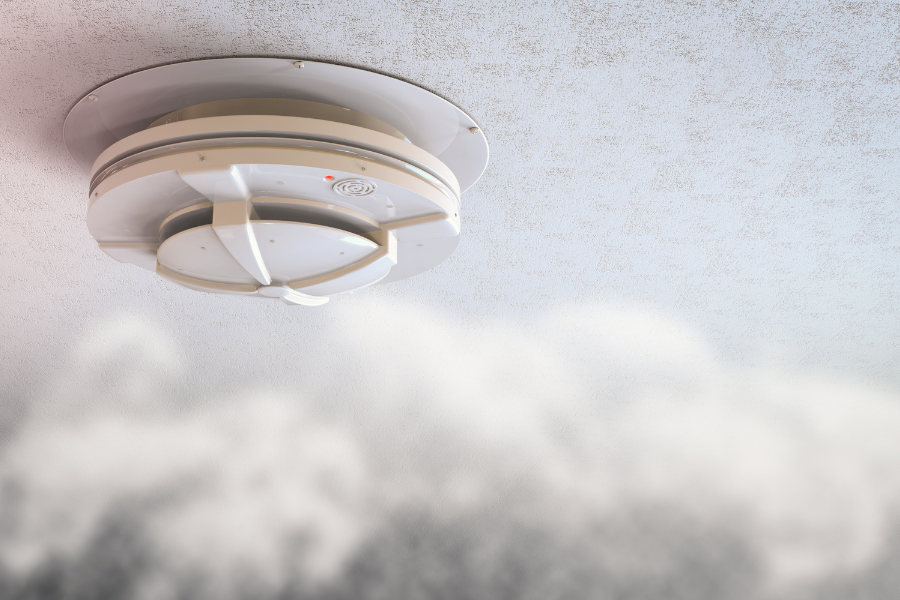
Fire Extinguishers
Keep a fire extinguisher in your kitchen and know how to use it. Remember the acronym PASS: Pull the pin, Aim at the base of the fire, Squeeze the handle, and Sweep side to side. But here's the important part: only attempt to fight a fire if it's small and you have a clear escape route. Your safety is worth more than any possession.
Escape Plan
Every family should have a fire escape plan and practice it regularly. Identify two ways out of every room and establish a meeting place outside. It might feel silly practicing, but muscle memory could save your life in an emergency.
What Central Florida Homeowners Should Know
Living in Central Florida brings unique considerations for fire safety. Our frequent thunderstorms can cause power surges and lightning strikes that damage electrical systems. After severe weather, have your electrical system inspected if you notice any issues.
Also, our year-round growing season means yard debris accumulates quickly. Keep your gutters clean and maintain proper clearance around your home. Dry leaves and branches can turn a small fire into a big problem fast. This is especially important during Florida's storm season, when high winds can spread fires rapidly.
When Prevention Isn't Enough
Despite our best efforts, sometimes fires happen. If you ever find yourself dealing with fire damage, remember that the first 24-48 hours are critical for minimizing long-term damage. Smoke and soot can cause ongoing problems even after the flames are out, and water damage from firefighting efforts adds another layer of complexity that requires professional attention.
Sometimes fires also create conditions that lead to mold growth, especially in Florida's humid climate. The combination of water damage and compromised building materials can create the perfect environment for mold to take hold within 24-48 hours.
Understanding the fire damage restoration process can help you know what to expect if disaster strikes your home.
That's where having a trusted restoration partner makes all the difference. Our team at Florida Fire & Flood is available 24/7 because we know disasters don't wait for business hours. We handle everything from initial damage assessment to complete reconstruction, working directly with your insurance company so you don't have to navigate that maze alone.
We've helped countless Central Florida families recover from devastating fires, from small kitchen fires in Ocala to complete house fire restoration projects that require total rebuilds.
The Bottom Line
Fire prevention really comes down to being mindful and prepared. Most house fires are preventable with some basic precautions and regular maintenance. Stay alert while cooking, keep your home's electrical and heating systems in good shape, and make sure your family knows what to do in an emergency.
Nobody plans for a house fire, but a little preparation goes a long way toward keeping your family and property safe. And if the unthinkable does happen, know that there are people ready to help you rebuild and move forward.
Stay safe out there, Central Florida. Your home is your sanctuary, let's keep it that way.
Need help with fire damage restoration or have questions about protecting your home? Contact our team at Florida Fire & Flood. We're here 24/7 to help Central Florida families when disaster strikes.
Randy Lazarus
About The Author:
Randy Lazarus is the owner of Florida Fire & Flood, a locally owned and family-operated restoration company serving Central Florida communities since 2021. Leading a team of IICRC-certified technicians, Randy has built a reputation for providing 24/7 emergency response and compassionate service to homeowners and businesses facing water damage, fire damage, and mold emergencies. As a member of the Central Florida community, Randy understands the unique challenges property owners face in the region and is dedicated to helping his neighbors restore their properties and get back to normal life.

